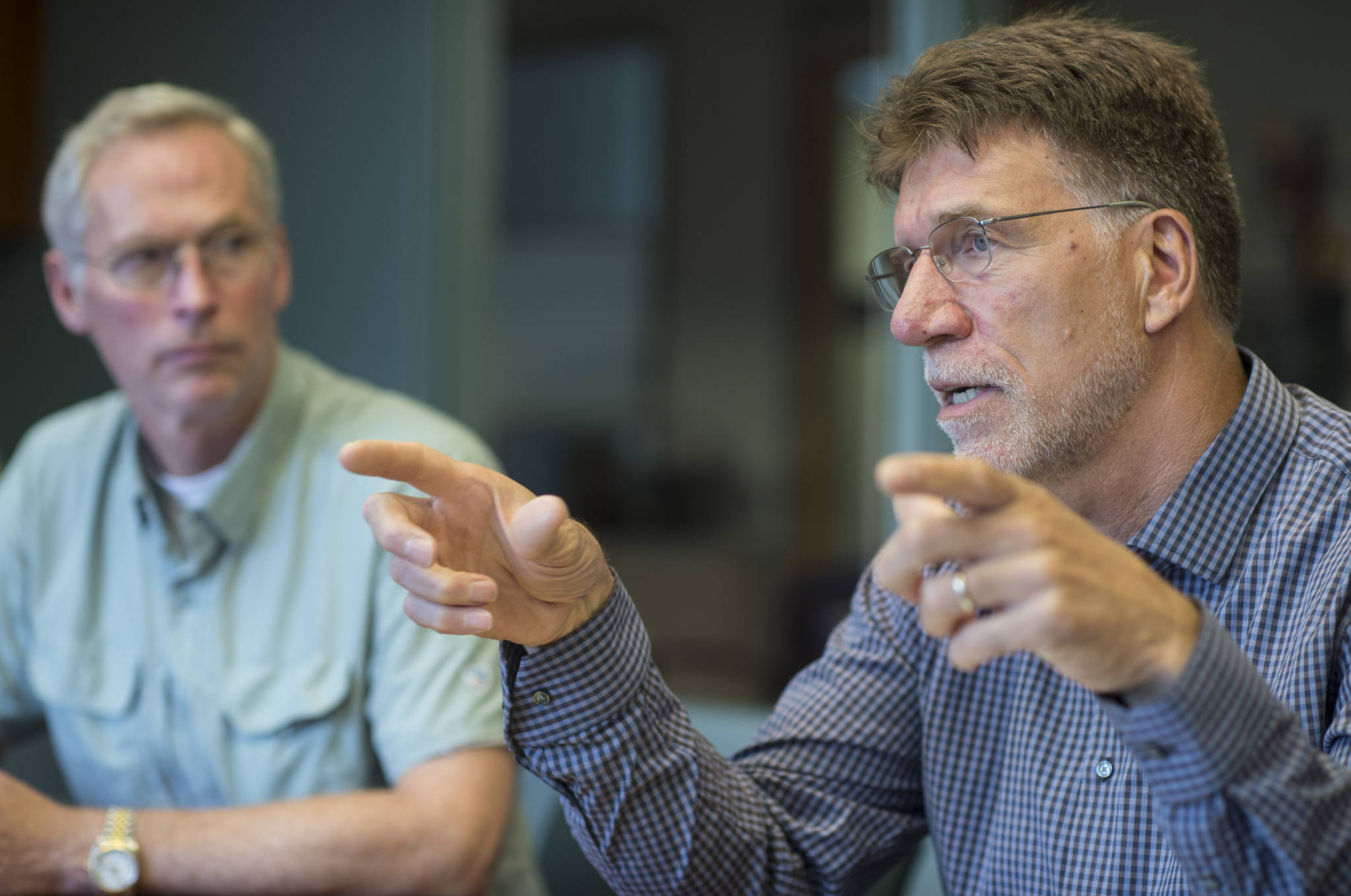The University of Alaska Board of Regents met Friday, with the main goal of discussing how to be more efficient with its spending.
The early portion of the meeting was dominated by another storyline — that of the University of Alaska Anchorage’s School of Education losing its accreditation last week. The Council for Accreditation of Educator Programs (CAEP) revoked the School of Education’s accreditation, as the school failed to meet four of five key standards.
Regent Dale Anderson said he was trying to remain calm as he spoke to UAA Chancellor Cathy Sandeen at the meeting Friday, but his frustration was clear.
“The incompetence of either the staff, faculty or administration to have four out of five problems in this accreditation search or analysis does not add up,” Anderson said. “We have to step back and really make some changes.”
The regents agreed to hold a listening session so students and their families could meet with regents about the situation. They’ll set a meeting for that soon.
When a school loses its accreditation, the university is no longer allowed to recommend students to the state for licensure. Teachers must have a license from the state to teach in public schools.
Alaska was having a hard enough time keeping teachers even before this. Nearly two-thirds of all teacher and administrative school positions are hired from out of state each year, according to data from the university. The university has made strides in recent years to try to turn this trend around, and aims to have 90 percent of Alaska’s new teacher hires be University of Alaska graduates. As Anderson pointed out during the meeting, the loss of accreditation “puts us years behind” in that goal specifically.
University officials and Department of Education and Early Development (DEED) officials are set to meet soon to talk about coming up with a long-term solution to the problem. DEED announced Friday that it would accept a recommendation for licensure for students in the UAA program who are graduating this spring.
Sandeen also said they’re working with other universities to make sure students who transfer are able to have their credits transfer over.
“This is a wake-up call,” Sandeen said, “and it’s only going to make us better.”
Meanwhile, the University of Alaska Southeast is poised to undergo its own accreditation process. As part of its regular cycle of retaining its accreditation, UAS is hosting the Northwest Commission on Colleges and Universities (NWCCU) in April.
UAS has been accredited since 1983, and the NWCCU’s accreditation includes all UAS campuses (in Juneau, Ketchikan and Sitka). The public can comment on UAS’ qualifications before March 22 by mailing NWCCU at 8060 165th Avenue NE, Suite 100, Redmond, WA 98052.
Trying to save money
University of Alaska System President Jim Johnsen said university leaders are doing what they can to make sure they spend their money efficiently. He ran through a half-hour presentation about various ways to save costs. Most involved technological solutions to streamline operations. Other ways included reducing facility operating costs and sharing resources.
“There are things on this list that are achievable but have been plaguing us for many years,” regent Karen Perdue said during the meeting. “Hopefully with the increased collaboration across the system we can tackle these issues at last. This will only make our institution stronger.”
One other avenue toward saving money — one that affects each campus — is cutting personnel. Johnsen showed that since 2014, the university has cut 15 percent of its employees. UAS has been hit even worse than that, UAS spokesperson Keni Campbell said in an email. Campbell said UAS has lost 22 percent of its employees since 2014. That’s 143 employees, according to Johnsen’s presentation.
Working with the governor and Legislature
The university’s budget has shrunk in recent years, as the Alaska Legislature cuts costs. Lawmakers approved a $10 million funding increase in 2017, the first such rise since 2014. Regents and other university officials have said that increase was helpful but insufficient to keep the University of Alaska competitive with other institutions across the country.
During his report at Friday’s meeting, Johnsen said he and other university officials have met twice with Gov. Mike Dunleavy’s administration, three times with Office of Management and Budget Director Donna Arduin. Johnsen said he was appreciative that Dunleavy had taken the time to listen to university administrators.
The Dunleavy administration is expected to make “significant” changes to Gov. Bill Walker’s final budget, Johnsen said. Dunleavy’s initial budget proposal included a $1.6 billion deficit, and Johnsen said people in his office will be keeping a close eye on what goes on at the Capitol.
Johnsen said they’re also trying to meet with lawmakers, but quipped that it’s difficult to tell which legislators are the most important ones to talk with because the House of Representatives still hadn’t figured out its leadership as of Friday.
• Contact reporter Alex McCarthy at 523-2271 or amccarthy@juneauempire.com. Follow him on Twitter at @akmccarthy.

